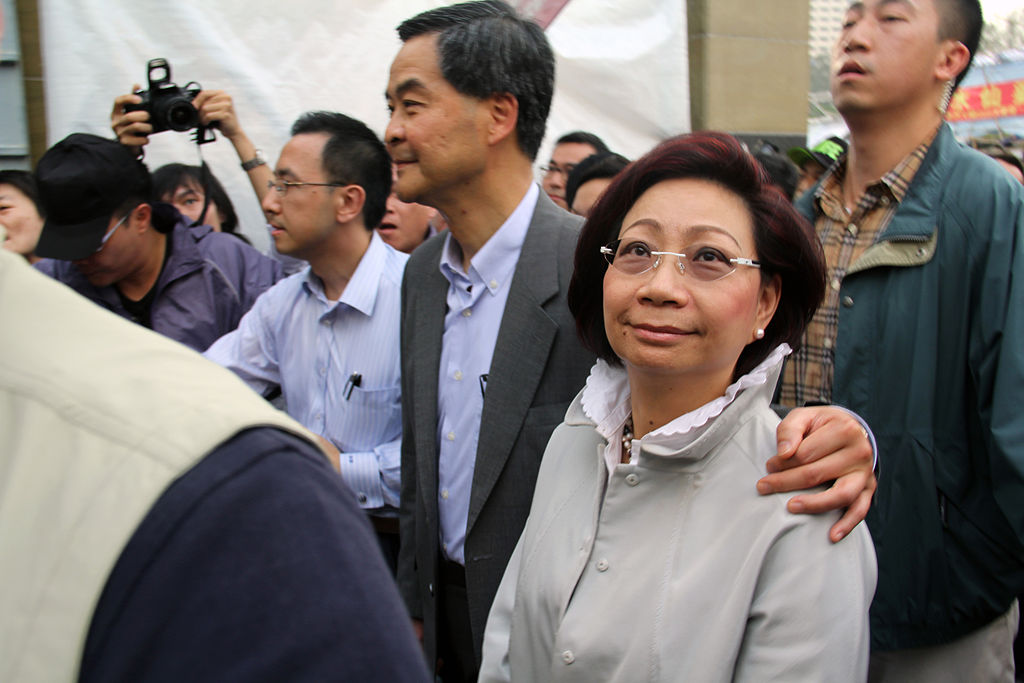Hong Kong's Chief Executive Leung Chun-ying (梁振英) and his wife Regina Tong Ching Yee (唐青儀) allegedly used their political influence to violate airport's security regulations.
According to Apple Daily, on March 28 Leung Zung-jan, daughter of the Chief Executive, was waiting at an airport lounge for a Cathay Pacific flight bound to San Francisco. She then realised that she had forgotten her hand luggage outside of the security area.
Her mother, who had accompanied her to the airport, asked the airline's staff to bring the hand luggage to her daughter. Her request was turned down because, according to existing security regulations, passengers need to exit the security area and claim their luggage personally. Mrs Leung reacted angrily. "Do you know who I am?", she allegedly said. "There are no drugs or forbidden items inside [the luggage]".
 |
| Leung Cun-ying with his wife Regina Tong Ching Yee |
Leung Zung-jan called her father and let him talk with a member of the airline's staff who, on hearing his voice, said: "Hello Mr Leung". To this he allegedly replied: "Call me Mr Chief Executive". He asked the airline personnel that his daughter's hand luggage be returned to her. Despite the staff's explanations, he would not back down.
The airline called the Airport Authority (AA). A senior official of the AA arrived at the lounge and tried to persuade the Chief Executive that his request could not be met. However, Leung would not listen, and in the end the official decided to yield. He allowed the hand luggage to be brought to Leung's daughter, but he reiterated to Leung that it was "an exceptional situation" and explained to him once more the existing regulations.
Leung Chun-ying is one of Hong Kong's most unpopular leaders. According to a recent poll conducted by the Public Opinion Programme of Hong Kong University, Leung's approval rating fell below 20% in 2016. He has been nicknamed "689" because he was elected in 2012 with the votes of 689 out of the 1,200 members of Hong Kong's Election Committee. The fact that he governs a city of over seven million people with the votes of less than seven hundred has made him a symbol of the city's lack of democracy and of the collusion between business tycoons and Beijing. During the 2014 Umbrella Revolution, pro-democracy protesters demanded that he step down.
Comments
Post a Comment